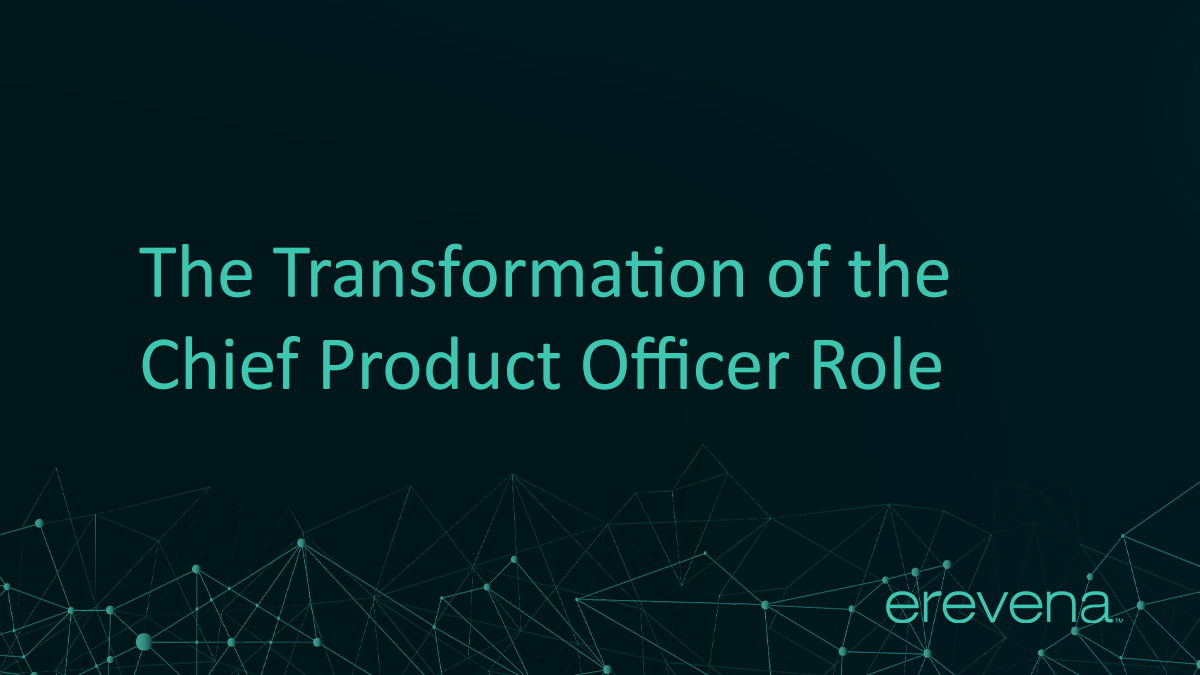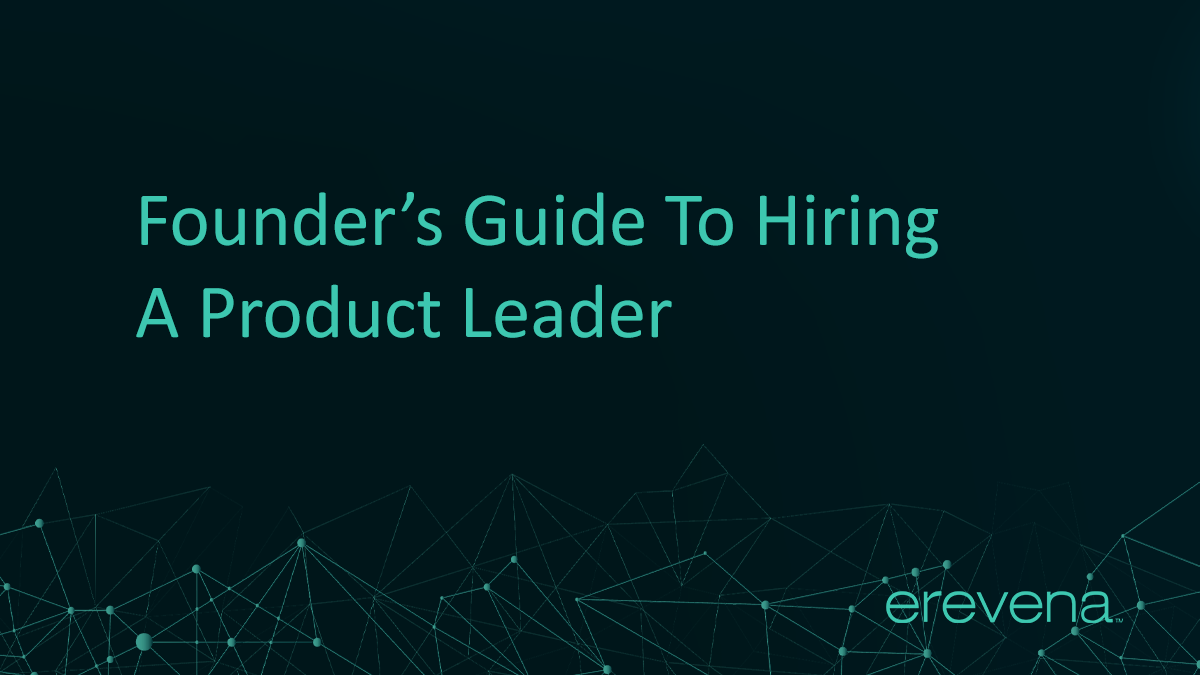The field of artificial intelligence has witnessed remarkable advancements in recent years, with generative AI technologies at the forefront of innovation. As these technologies continue to reshape industries and redefine human-computer interactions, the role of the Chief Product Officer (CPO) is undergoing a significant transformation. In this article, we briefly explore how the responsibilities and challenges of a CPO are evolving in the context of generative AI, and why this evolution is crucial for businesses going forward.
Generative AI: A Revolution in Product Development
Generative AI, a subset of artificial intelligence, focuses on creating machines and algorithms that can generate content, ideas, and even solutions with minimal human intervention. This technology leverages deep learning, neural networks, and massive datasets to enable machines to mimic human creativity and decision-making processes. As generative AI continues to advance, it has the potential to revolutionize product development across many industries.
From content generation to design optimization and even product prototyping, generative AI has found applications in numerous domains. Erevena’s clients are leveraging AI to assist in multiple areas from the diagnosis of breast cancer with Kheiron Medical, to Quinyx for workforce management, and DeepL or Phrase for localisation and translation services. These capabilities are reshaping the products and services offered by companies, making them more innovative, efficient, and tailored to the needs of customers/consumers. This, in turn, is driving the changing role of the CPO.
The Changing Role of the Chief Product Officer
The traditional role of a Chief Product Officer primarily revolved around product strategy, development, and delivery. However, with the integration of generative AI into the product development process, CPOs are facing new challenges and opportunities. Some key aspects of this transformation include:
- The continued emergence of the importance of Data-Driven Decision-Making: Generative AI heavily relies on data. CPOs need to be adept at harnessing and analyzing vast amounts of data to feed into AI models. This requires a deep understanding of data architecture, quality, and privacy issues. More importantly with GenAI, CPOs must ensure data usage is ethical, as potential concerns on data usage emerges.
- AI-Driven Innovation: In the past, CPOs mainly relied on market research and customer feedback to drive product innovation. With generative AI, they can use algorithms to analyze data and generate insights that may not be obvious to humans. This enables CPOs to develop products that are not only innovative but also predictive, as AI can anticipate customer needs based on historical data.
- Collaboration with Data Scientists: CPOs are finding themselves working even more closely with data scientists and AI engineers. They must foster collaboration between these teams to ensure that AI models align with the company’s product vision. Understanding the technical intricacies of AI is becoming increasingly important for CPOs to enable them to make informed decisions.
- Enhancing User Experiences: Generative AI can be used to personalize user experiences in real-time. CPOs are tasked with leveraging AI to create products that adapt to individual preferences and behaviour. This requires a deep understanding of user data, algorithms, and user interface design.
- Ethical and Regulatory Considerations: We believe that policy will play a fundamental role in the use of GenAI. The use of AI, especially in generative processes, raises ethical and regulatory challenges. CPOs must be vigilant in ensuring that AI-generated content or recommendations do not inadvertently promote bias or harm. They must therefore stay informed about evolving AI regulations (or help to create them) to ensure compliance.
- Redefining Product Development Timelines: Generative AI can significantly accelerate product development by automating tasks like design iterations and content creation. CPOs must adapt to these faster timelines, ensuring that quality and innovation are not compromised in the quest for speed.
- Managing AI Risks: “With great power comes great responsibility.” CPOs are now responsible for managing the risks associated with AI, such as data breaches, algorithmic biases, and other unintended consequences. This requires a proactive approach to risk assessment and mitigation.
- Scaling AI Adoption: Integrating generative AI into an organization’s product development process may require a shift in company culture and infrastructure. CPOs will play a crucial role in scaling AI adoption across the organization, from setting the vision to overseeing its execution.
Benefits and Opportunities
The evolving role of a CPO in the era of generative AI comes with several benefits and opportunities for both the individual and the organization:
- Innovation at Scale: Generative AI can enable companies to innovate rapidly and at scale. CPOs can drive innovation by harnessing AI’s creative capabilities to develop groundbreaking products and features.
- Enhanced Customer Experiences: AI-driven personalization can lead to better customer experiences. CPOs can leverage generative AI to create products and services that are more tailored to individual needs and preferences.
- Data-Driven Insights: CPOs have access to a wealth of data generated by AI models. This data can provide valuable insights into consumer behaviour and market trends, informing product development strategies.
- Efficiency and Cost Reduction: Automation of certain product development tasks through AI can lead to increased efficiency and cost reduction, freeing up resources for more strategic initiatives.
- Competitive Advantage: Companies that successfully integrate generative AI into their product development processes can gain a competitive edge in their respective markets. CPOs are at the forefront of driving this advantage.
In Conclusion
The role of a Chief Product Officer is evolving rapidly in the age of generative AI. CPOs are no longer solely responsible for product strategy and development but are also pivotal in harnessing the power of AI to drive innovation, enhance user experiences, and navigate the ethical and regulatory challenges posed by AI technologies. Adapting to this evolving role requires a blend of technical acumen, data literacy, and a strategic mindset.
Erevena have successfully completed CPO searches for B2B SaaS clients that needed a clear understanding of AI and ML but as Generative AI continues to advance it will become an increasingly important, if not vital, requirement to the brief. CPOs play a critical role in shaping the future of product development, making decisions that not only meet market demands but also align with ethical and regulatory standards. Embracing this transformation is not just an opportunity for CPOs; it’s a necessity for organizations looking to thrive in a world increasingly shaped by AI-powered products and services.
Share this article:













